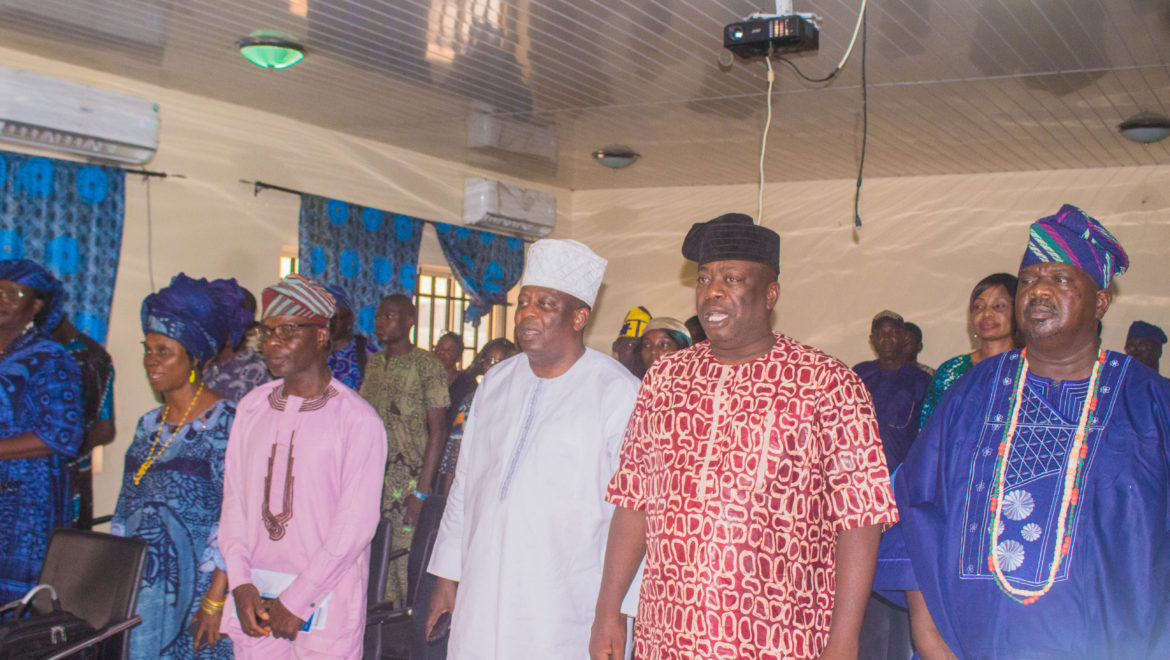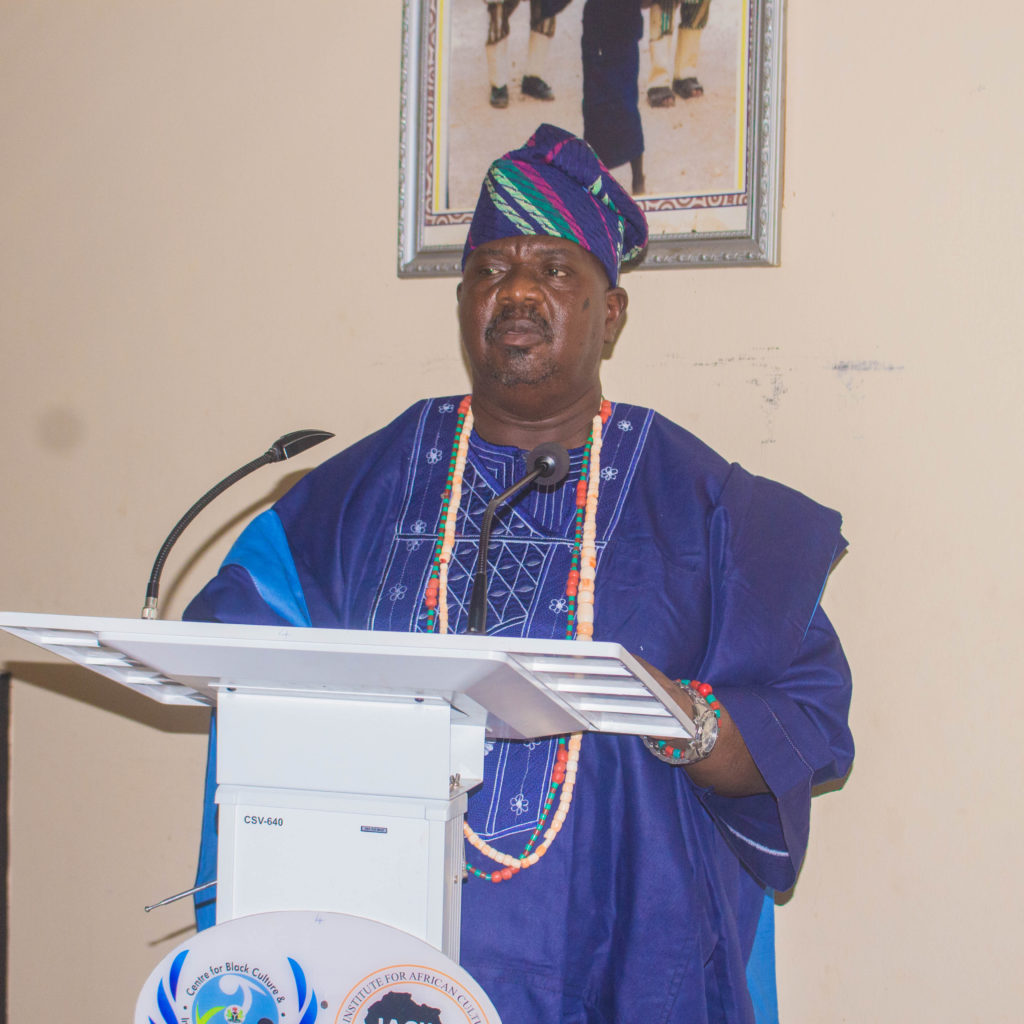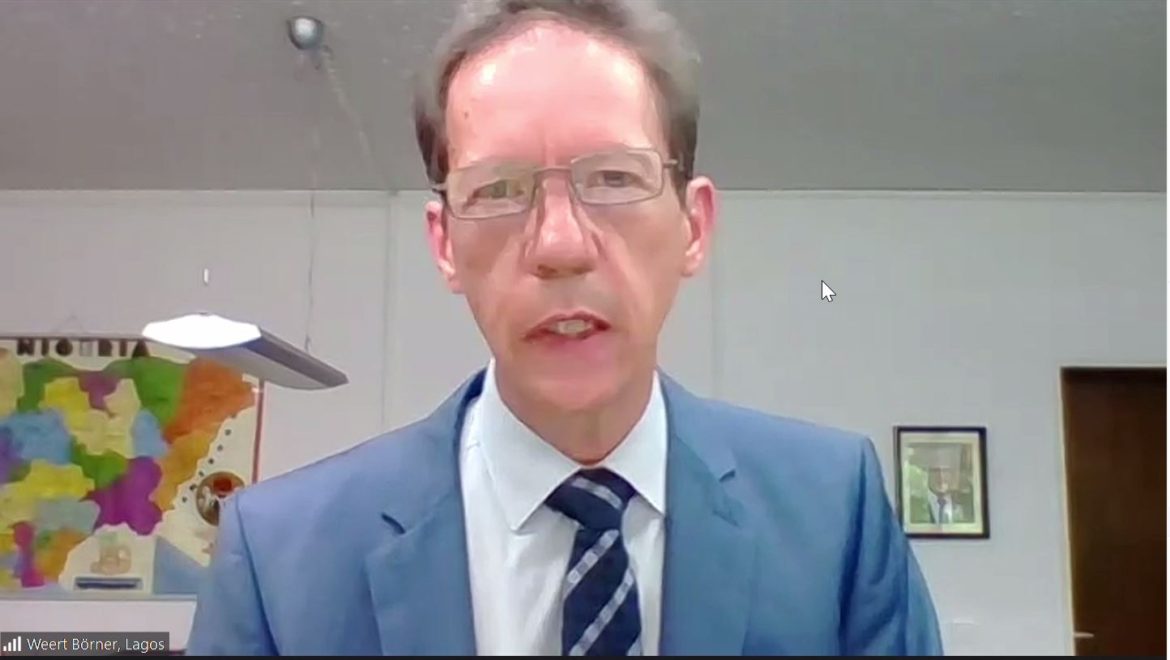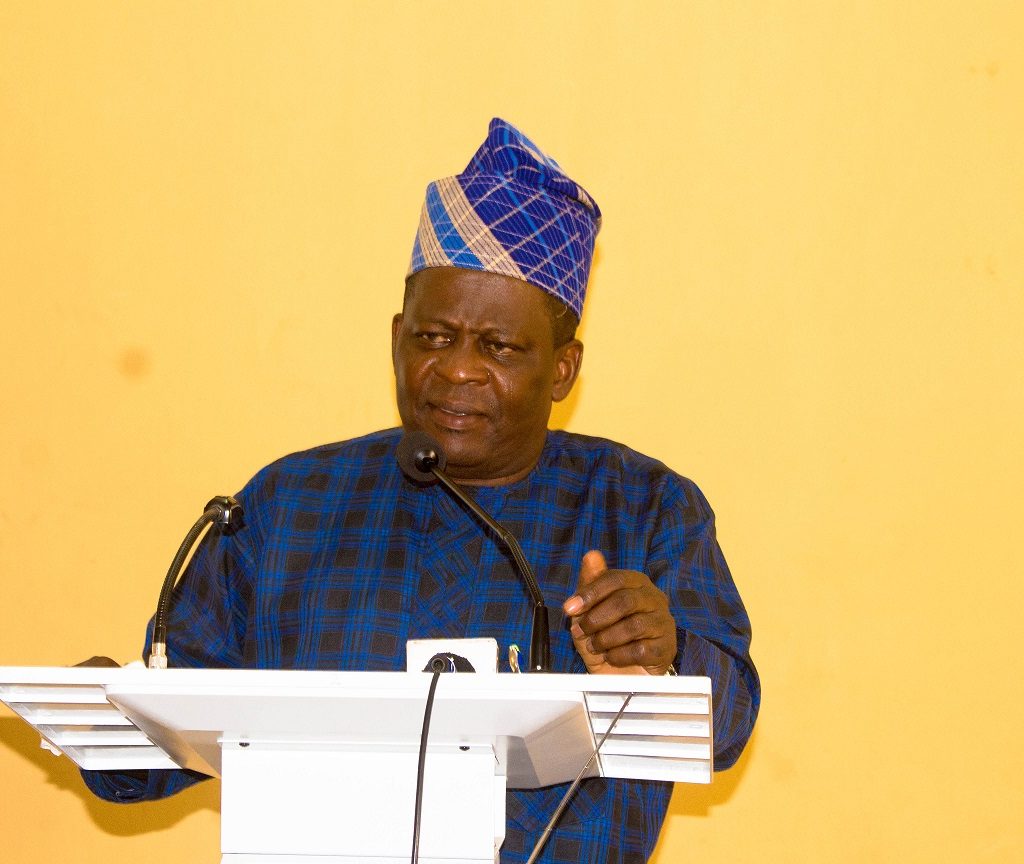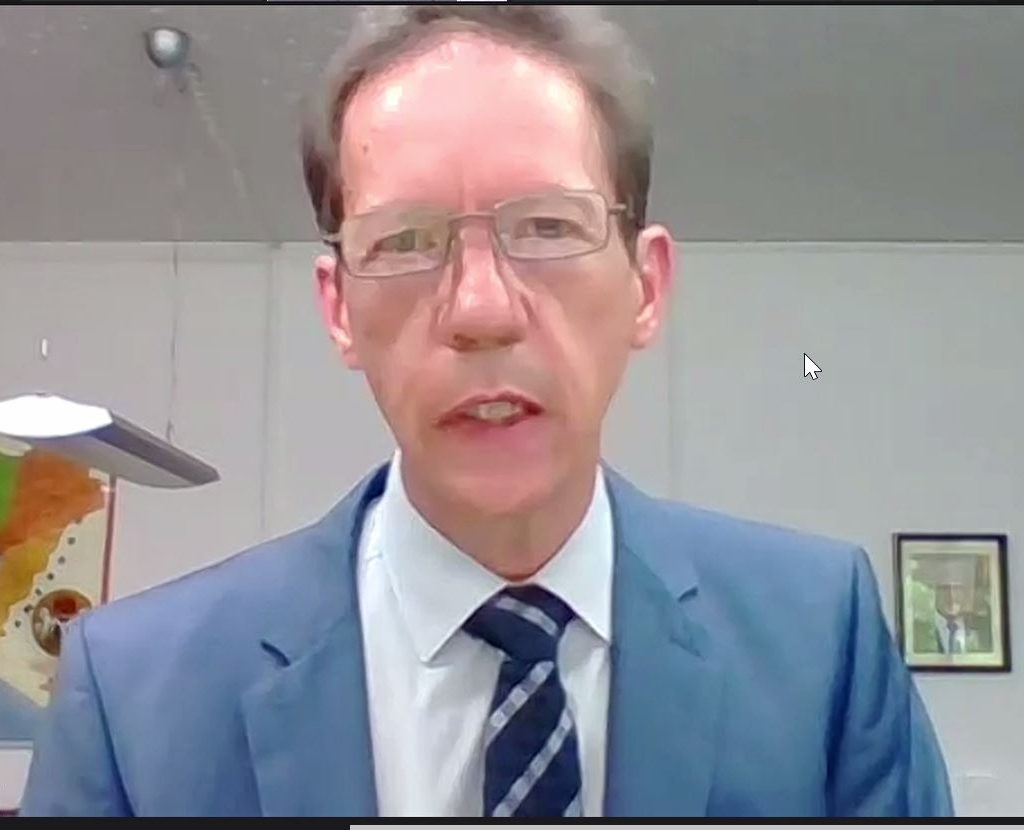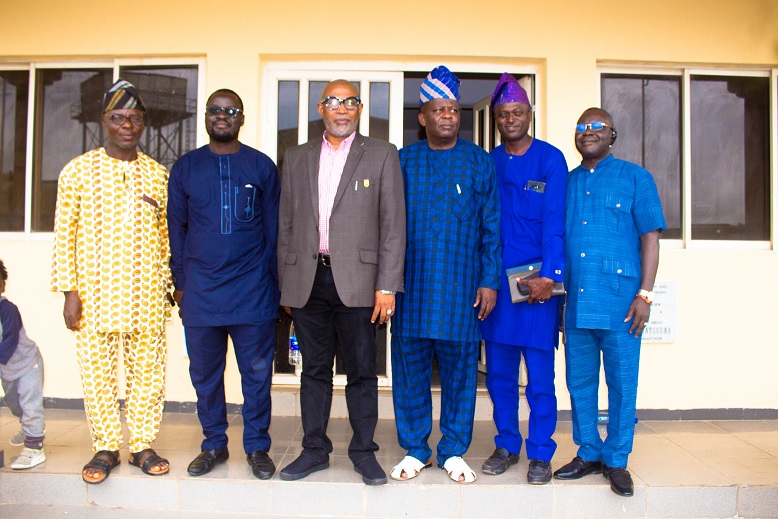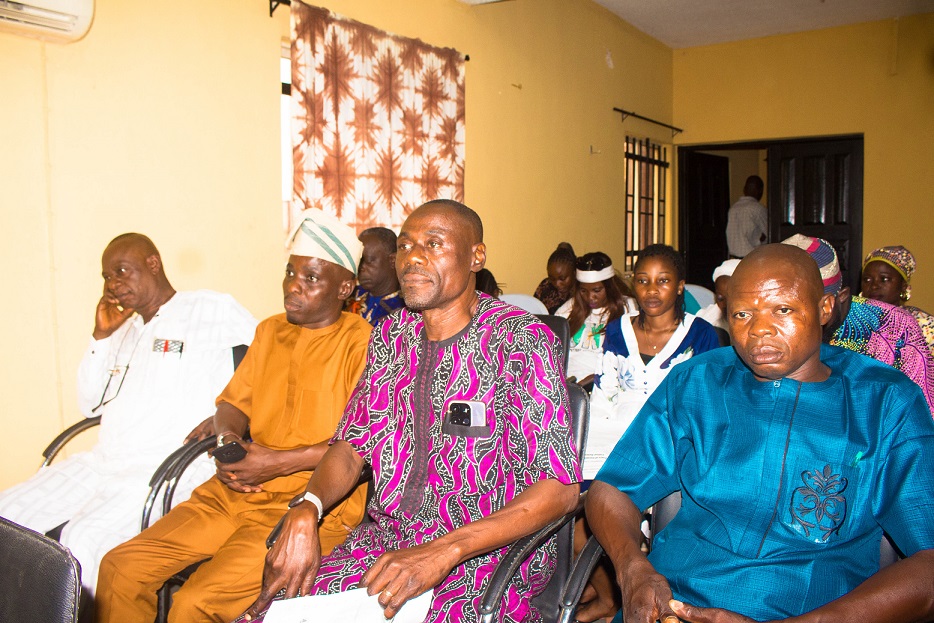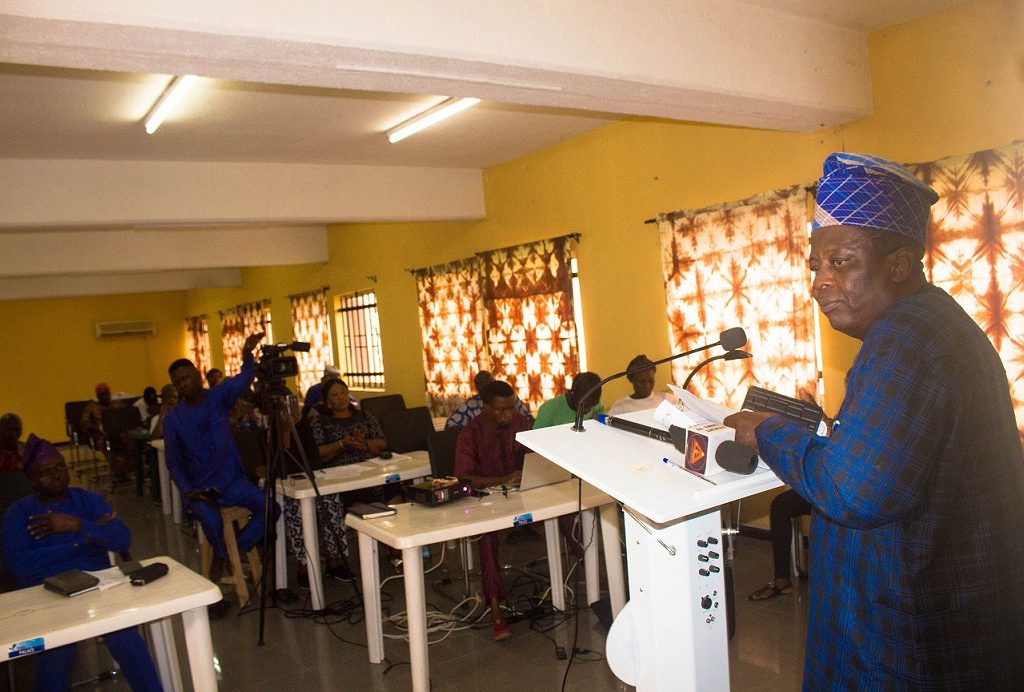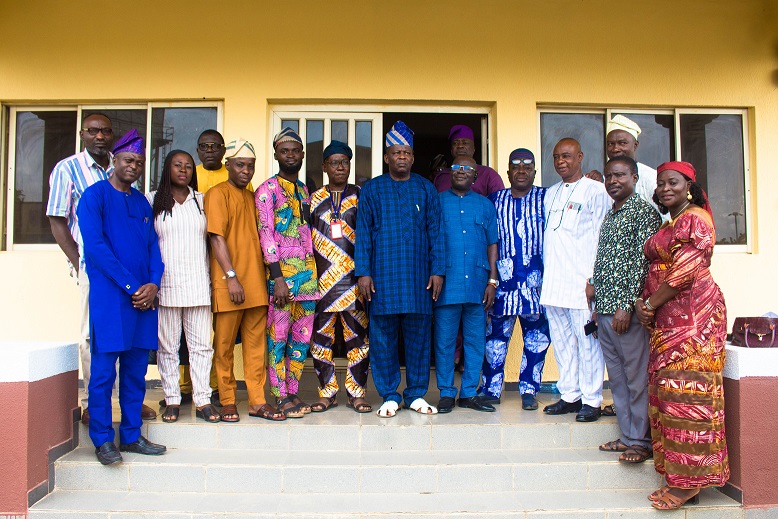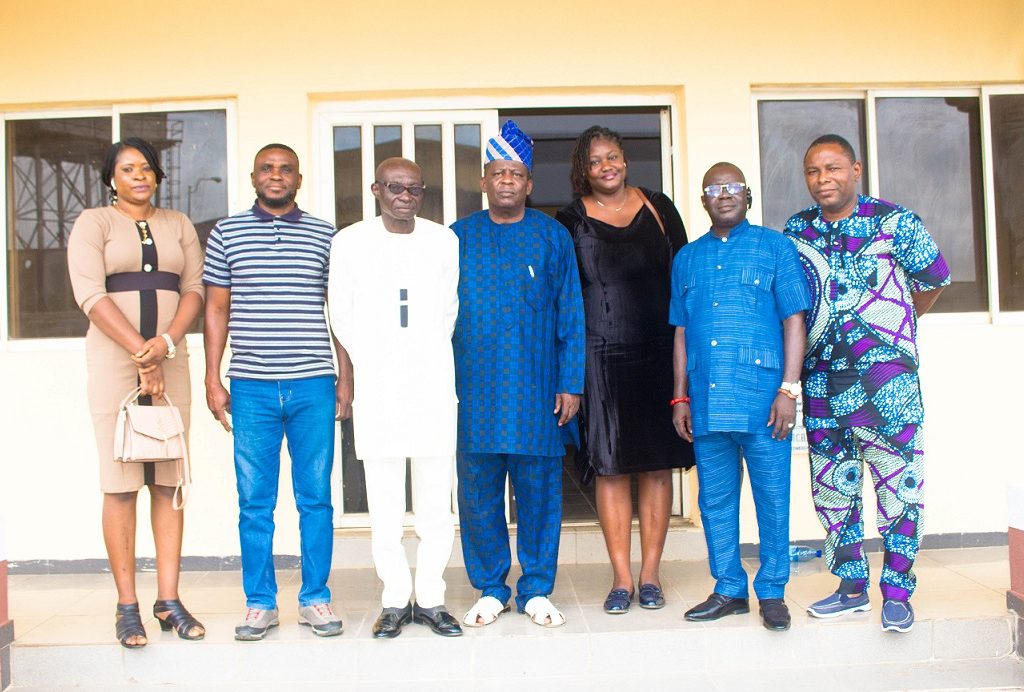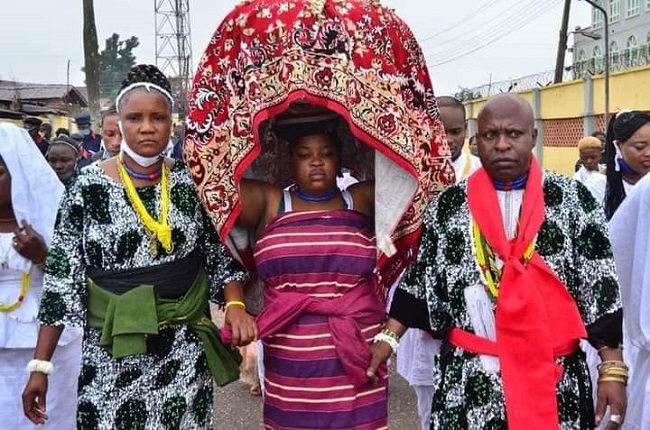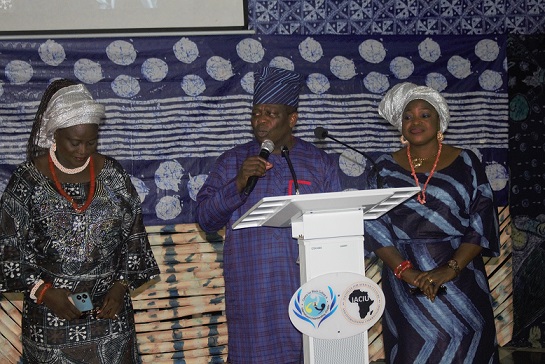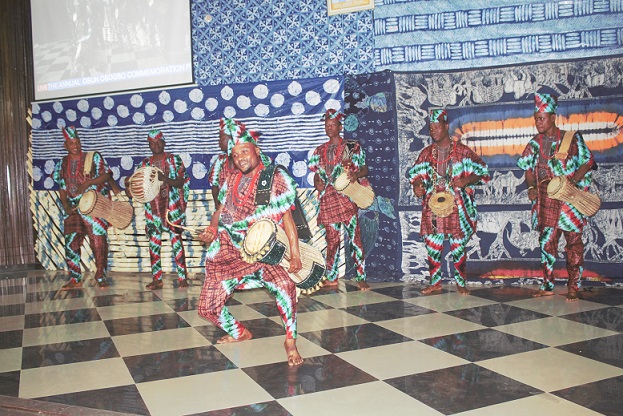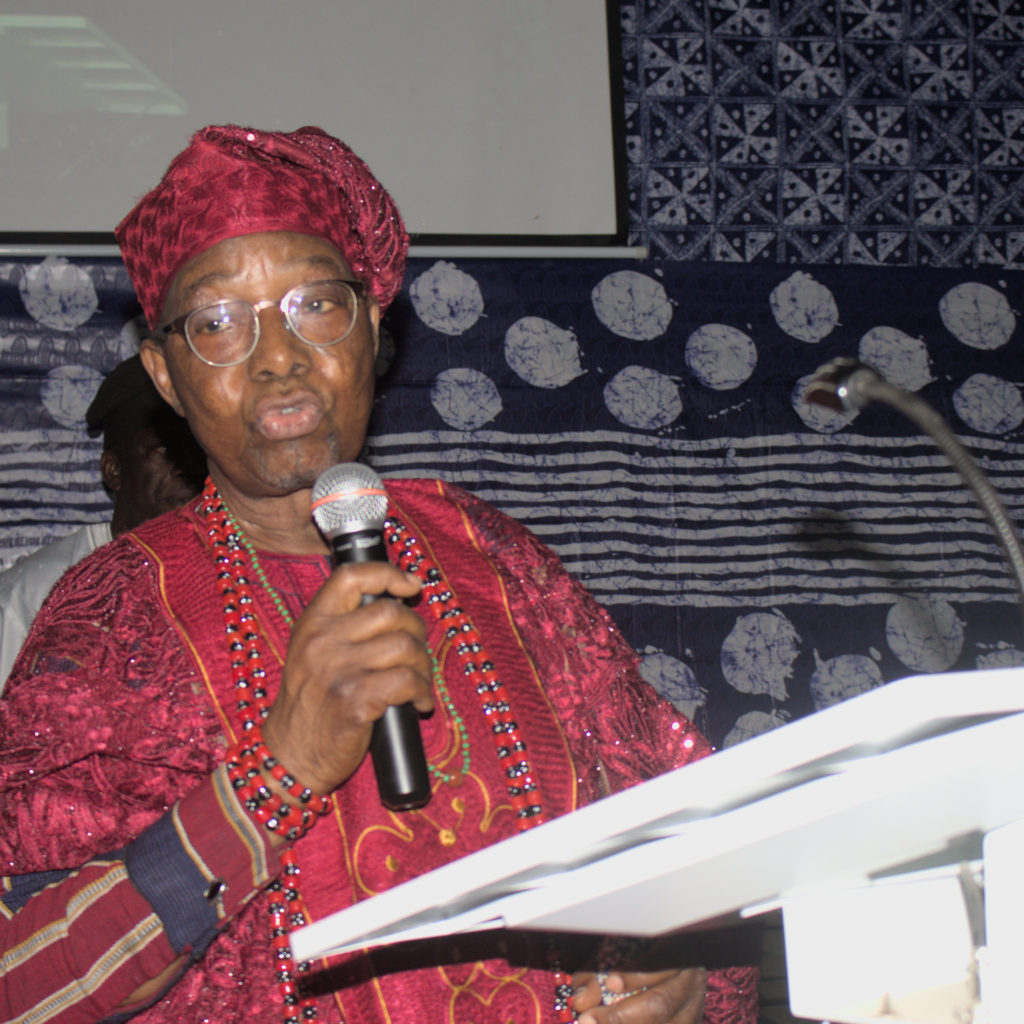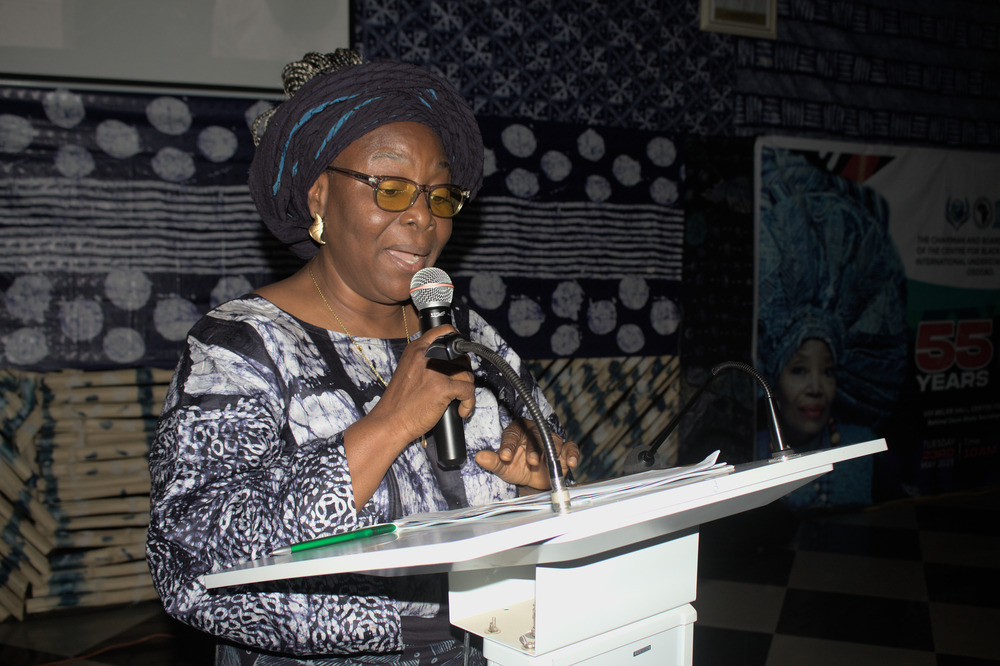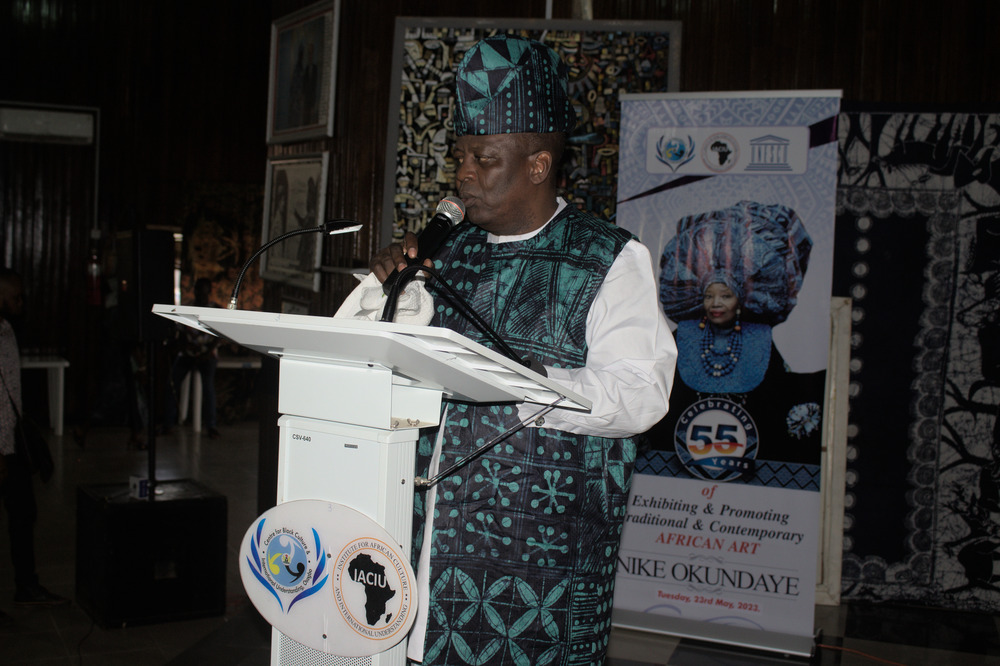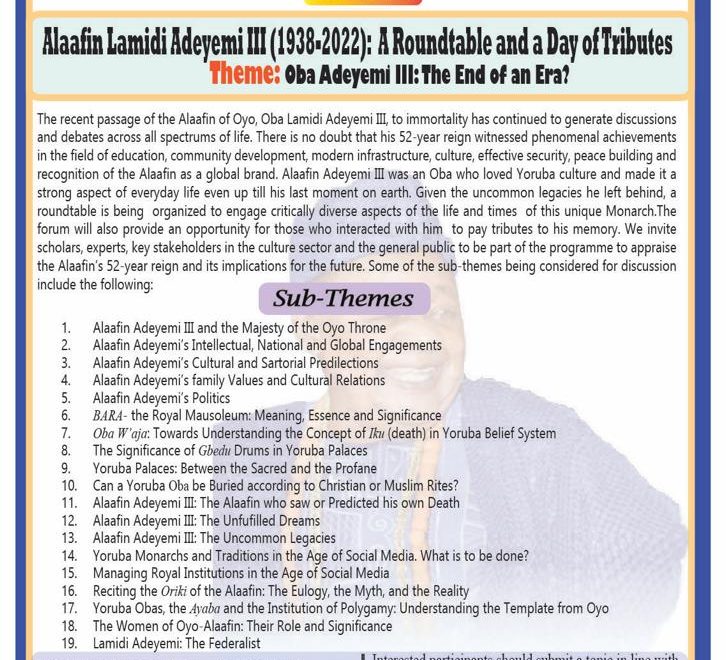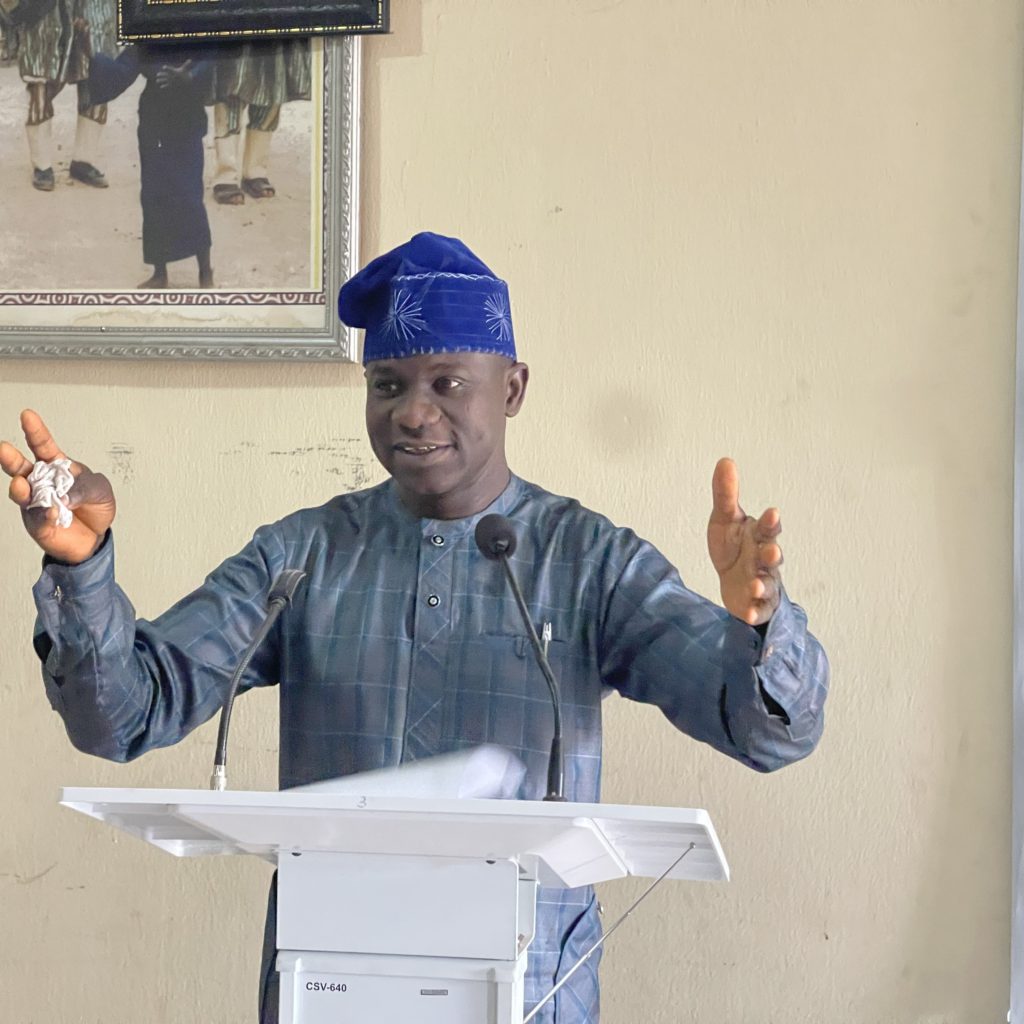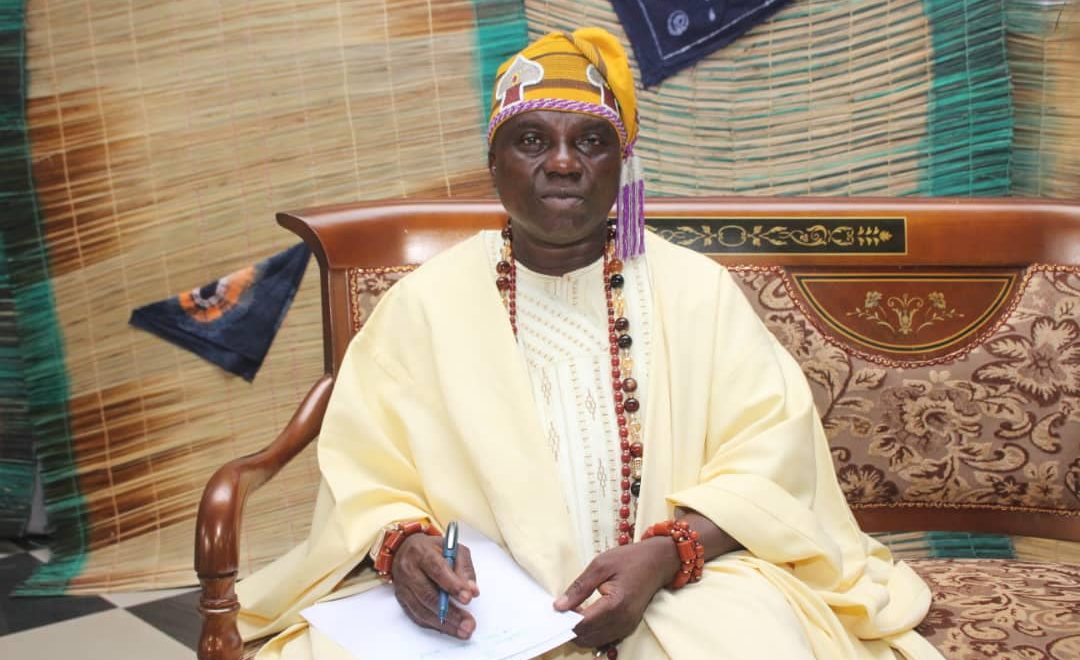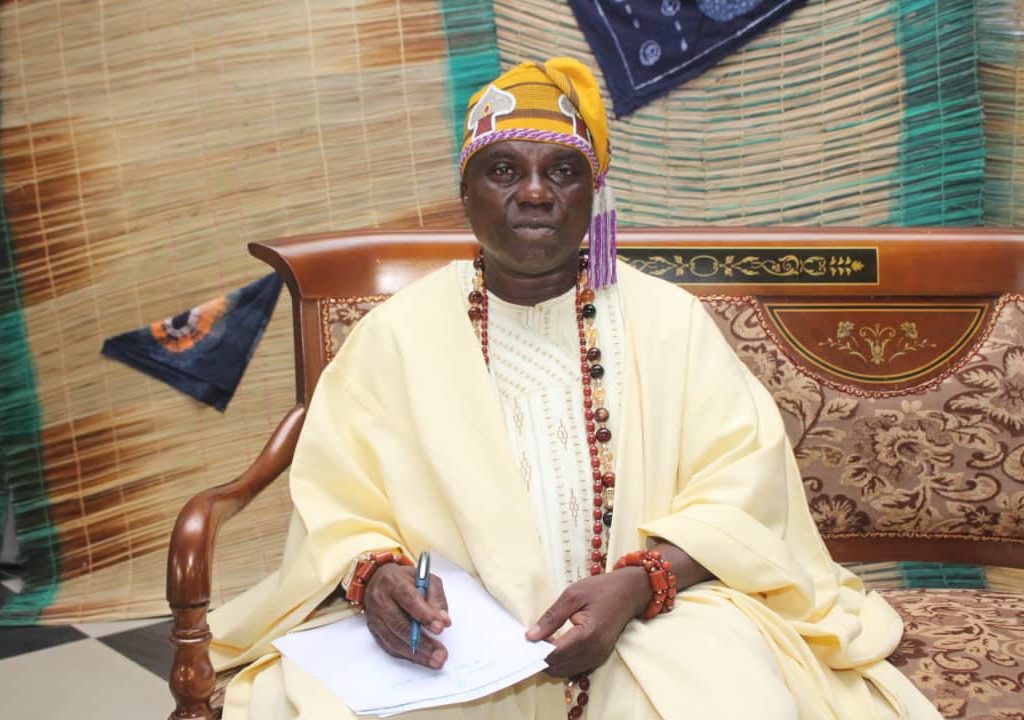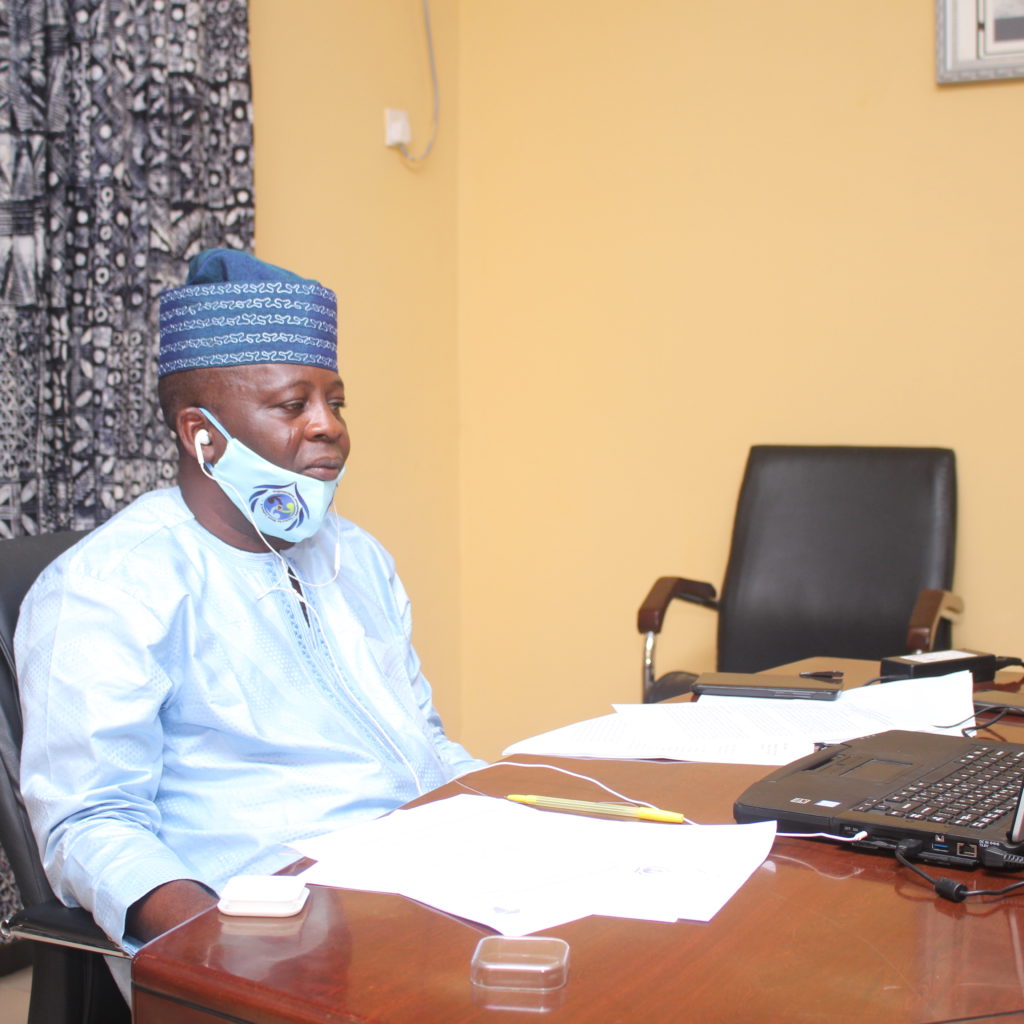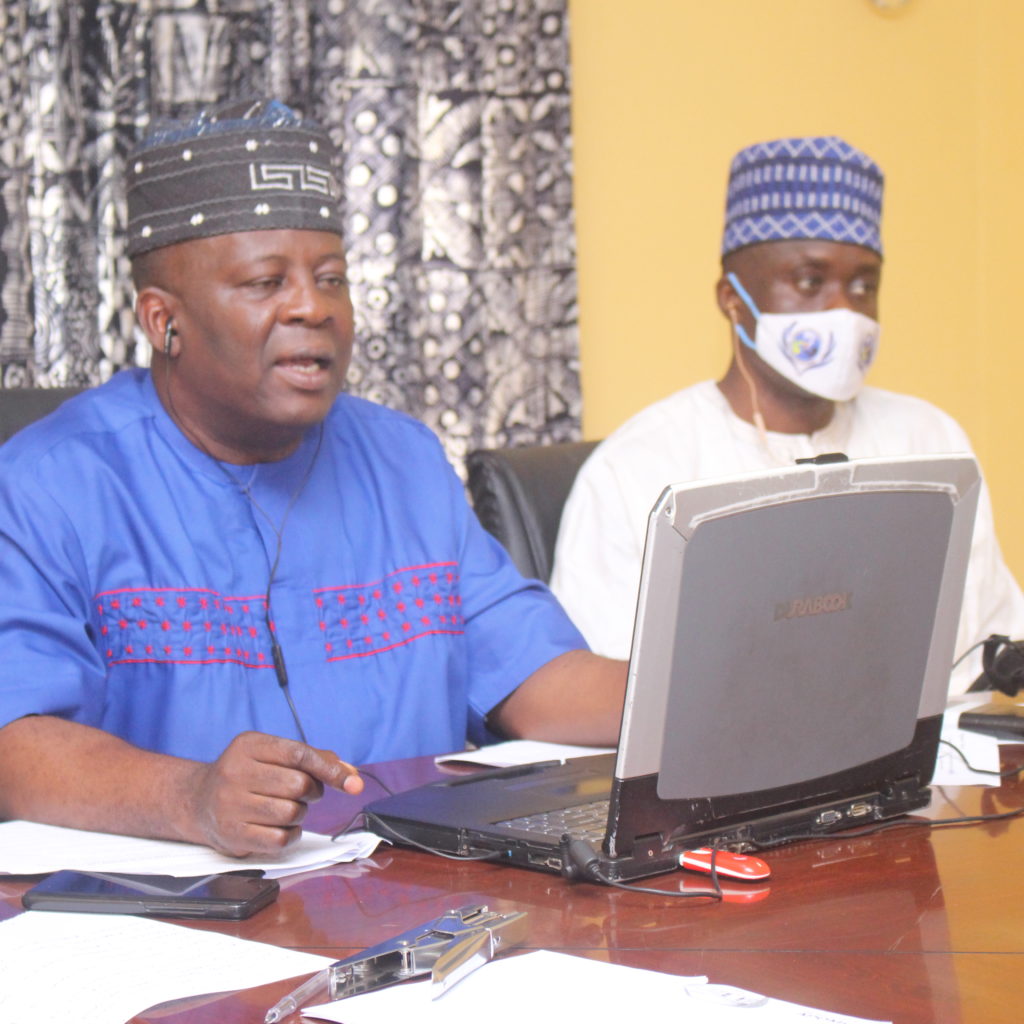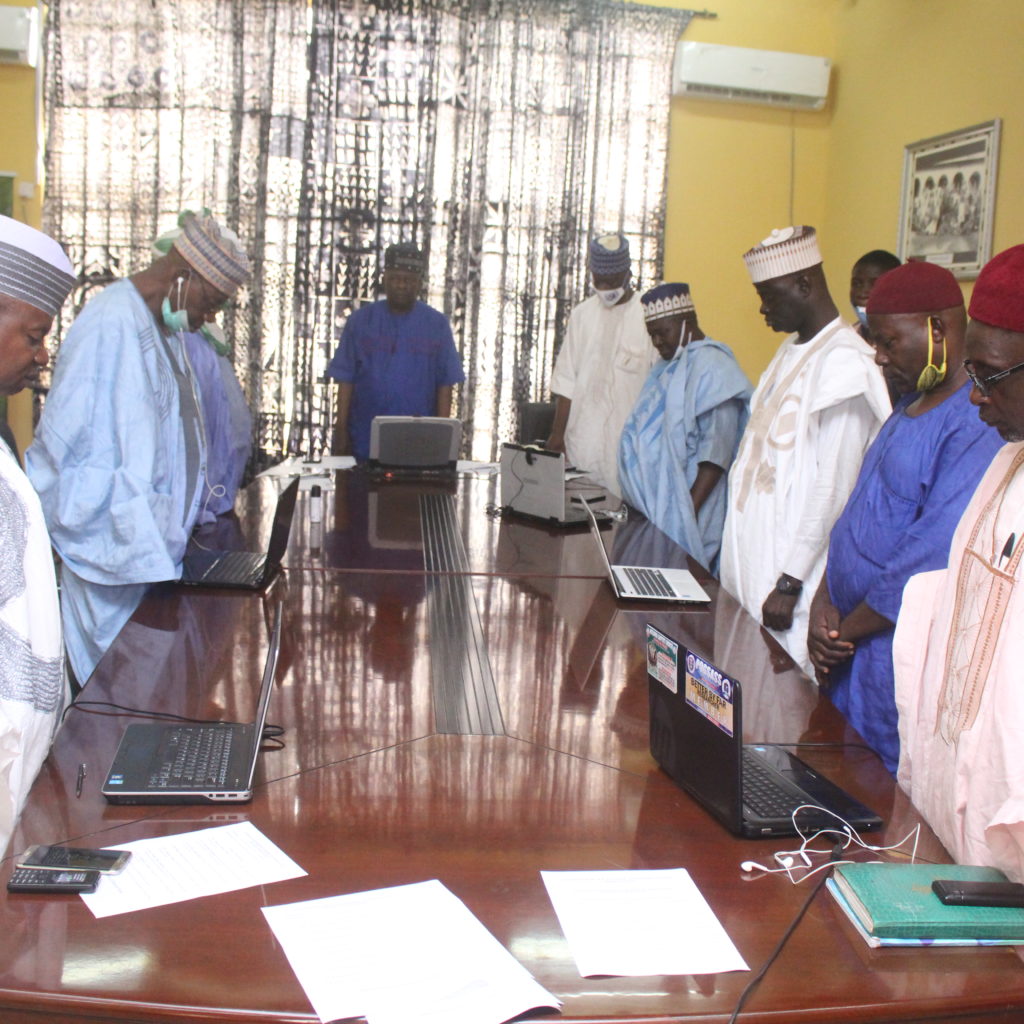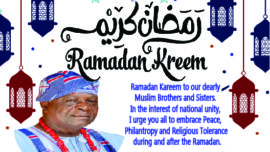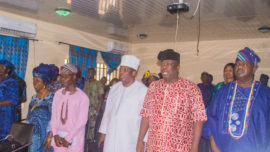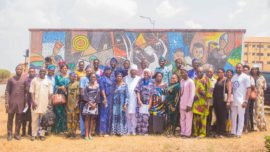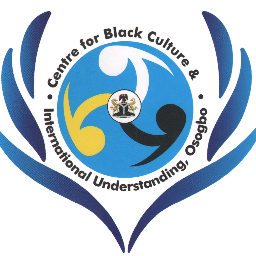Communique at the end of the 2024 Centre for Black Culture and International Understanding Black History MONTH
You are here: Home  Resources
Resources  Events
Events  CBCIU CELEBRATES 2024 BLACK HISTORY MONTH
CBCIU CELEBRATES 2024 BLACK HISTORY MONTH
Communique at the end of the 2024 Centre for Black Culture and International Understanding Black History MONTH
01 March, 2024
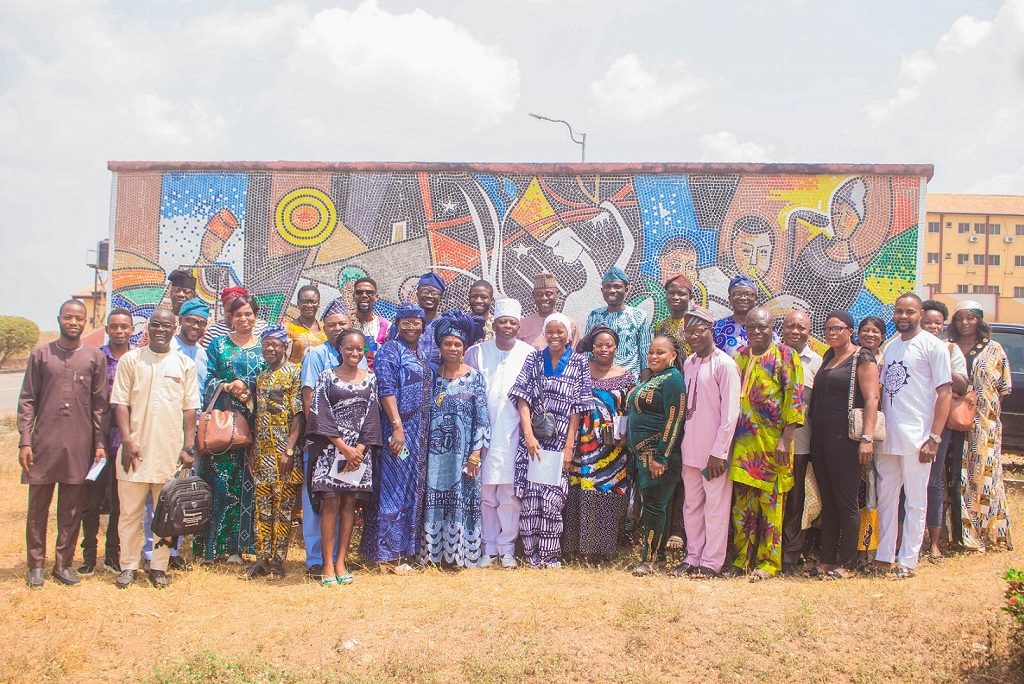
Every February, Black History Month (BHM) is celebrated to reflect on the history, stories, and contributions of Blacks across the globe and in different fields. On 27th February 2024, the Centre for Black Culture and International Understanding (CBCIU), Osun State, observed the 2024 Black History Month (BHM) titled “The Art of Blackness” in accordance with the global theme that focuses on “African Americans and the Arts.”
The Centre for Black Culture and International Understanding theme “Art of Blackness” focused on the diverse aspect of Art by focusing on African Visual Arts, Films and Music, which are essential to blacks identity across various epochs of African history as we reflect on the legacies and achievement of generations of the past, and the events of the presents. As the CBCIU community gathers to commemorate Black History Month, The CBCIU-BHM panel also had in attendance Dr. Oluwafunminiyi Raheem (Osun State University, Osogbo), Olawale Yemisi (University of Ilorin, Kwara State) Dr. Mojeed Animashaun (Fountain University, Osogbo), and Dr. Charles Omotayo (Adeyemi Federal University of Education, Ondo).
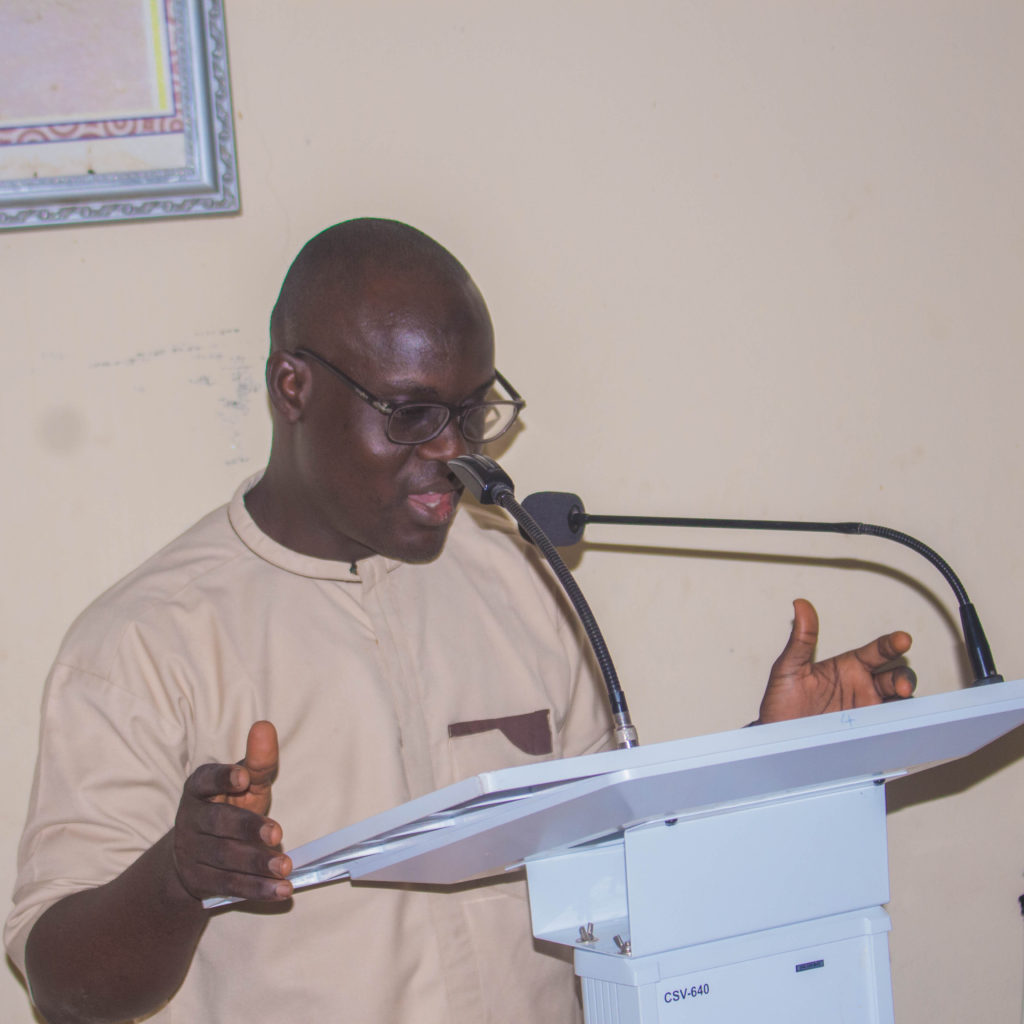
Dr. Oluwafunminiyi W. Raheem
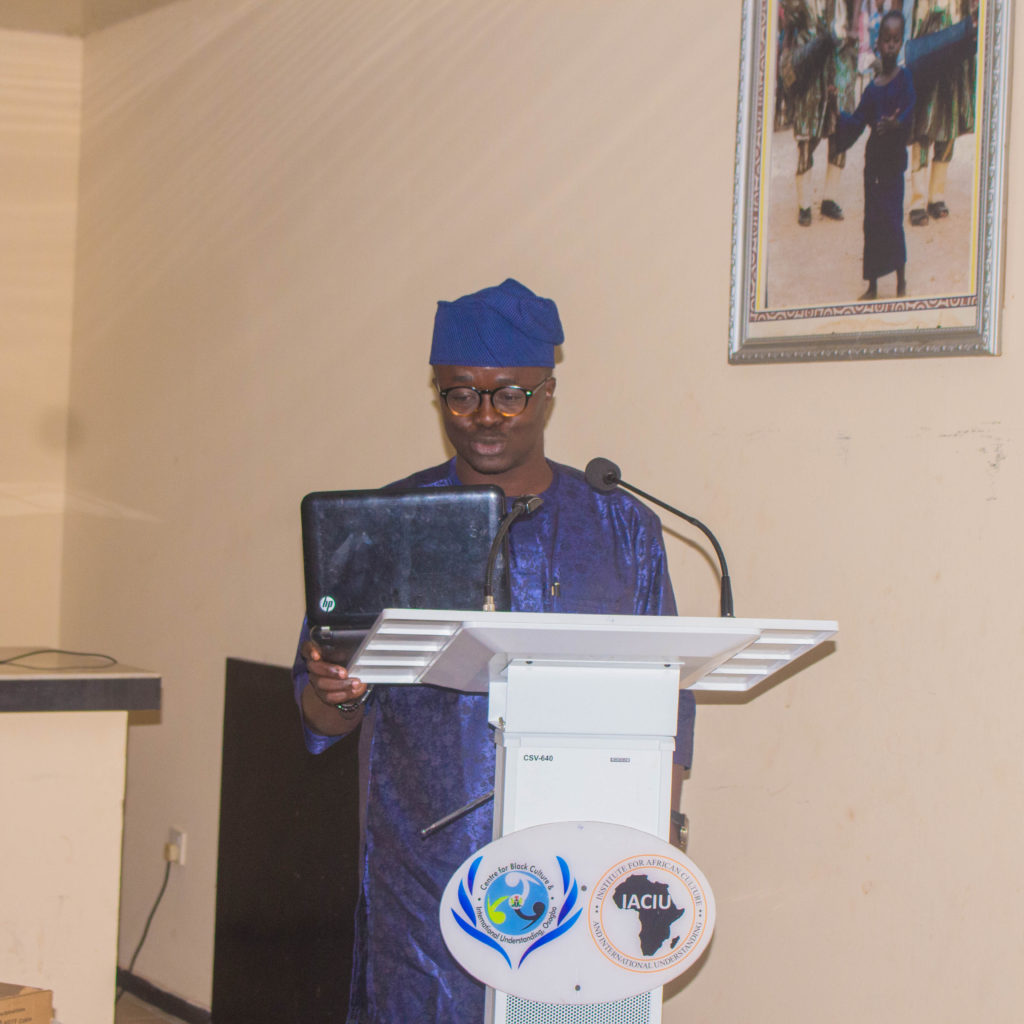
Dr. Charles Omotayo
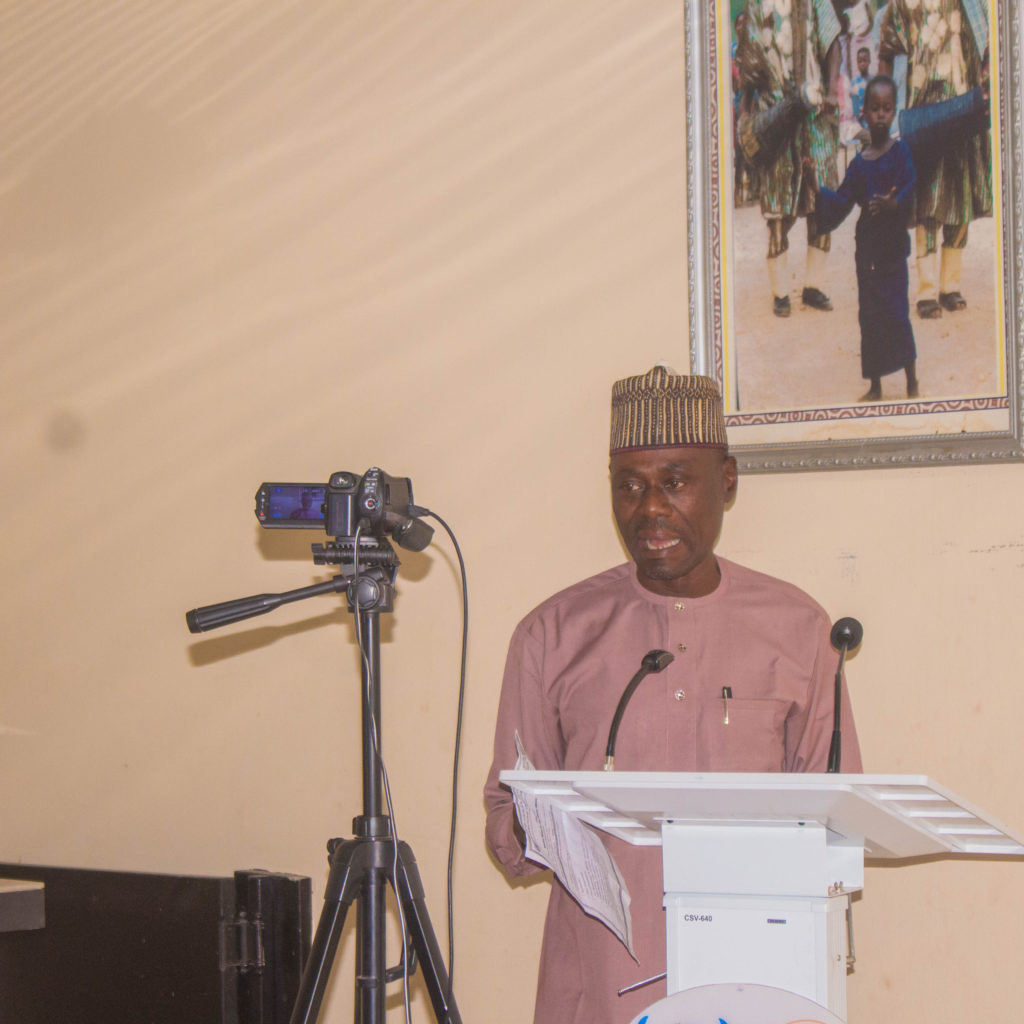
Dr. Mojeed Animashaun

Yemisi Olawale
The lecture had in attendance the 𝐂𝐮𝐫𝐚𝐭𝐨𝐫, 𝐍𝐚𝐭𝐢𝐨𝐧𝐚𝐥 𝐆𝐚𝐥𝐥𝐞𝐫𝐲 𝐨𝐟 𝐀𝐫𝐭, 𝐌𝐫. 𝐀𝐝𝐨𝐝𝐨 𝐒𝐮𝐧𝐝𝐚𝐲 𝐚𝐧𝐝 𝐬𝐭𝐚𝐟𝐟 𝐨𝐟 𝐭𝐡𝐞 𝐍𝐚𝐭𝐢𝐨𝐧𝐚𝐥 𝐆𝐚𝐥𝐥𝐞𝐫𝐲 𝐨𝐟 𝐀𝐫𝐭, 𝐎𝐬𝐨𝐠𝐛𝐨; 𝐂𝐡𝐢𝐞𝐟 𝐅𝐚𝐧𝐢𝐲𝐢 𝐅𝐚𝐤𝐚𝐲𝐨𝐝𝐞, 𝐀𝐠𝐛𝐨𝐧𝐠𝐛𝐨 𝐀𝐰𝐨 𝐨𝐟 𝐎𝐬𝐨𝐠𝐛𝐨𝐥𝐚𝐧𝐝; 𝐂𝐡𝐢𝐞𝐟 𝐌𝐫𝐬. 𝐀𝐝𝐞𝐝𝐨𝐲𝐢𝐧 𝐅𝐚𝐧𝐢𝐲𝐢; 𝐌𝐫 𝐅𝐚𝐭𝐚𝐢 𝐀𝐝𝐞𝐤𝐮𝐧𝐥𝐞, 𝐟𝐨𝐫𝐦𝐞𝐫 𝐂𝐮𝐫𝐚𝐭𝐨𝐫, 𝐍𝐚𝐭𝐢𝐨𝐧𝐚𝐥 𝐂𝐨𝐦𝐦𝐢𝐬𝐬𝐢𝐨𝐧 𝐟𝐨𝐫 𝐌𝐮𝐬𝐞𝐮𝐦 𝐚𝐧𝐝 𝐌𝐨𝐧𝐮𝐦𝐞𝐧𝐭𝐬 𝐚𝐧𝐝 𝐬𝐭𝐚𝐟𝐟 𝐨𝐟 𝐍𝐚𝐭𝐢𝐨𝐧𝐚𝐥 𝐂𝐨𝐦𝐦𝐢𝐬𝐬𝐢𝐨𝐧 𝐟𝐨𝐫 𝐌𝐮𝐬𝐞𝐮𝐦 𝐚𝐧𝐝 𝐌𝐨𝐧𝐮𝐦𝐞𝐧𝐭𝐬; 𝐌𝐫. 𝐒𝐭𝐞𝐩𝐡𝐞𝐧 𝐎𝐧𝐢; 𝐬𝐭𝐮𝐝𝐞𝐧𝐭𝐬 𝐨𝐟 𝐭𝐡𝐞 𝐃𝐞𝐩𝐚𝐫𝐭𝐦𝐞𝐧𝐭 𝐨𝐟 𝐓𝐨𝐮𝐫𝐢𝐬𝐦 𝐚𝐧𝐝 𝐃𝐞𝐩𝐚𝐫𝐭𝐦𝐞𝐧𝐭 𝐨𝐟 𝐏𝐡𝐢𝐥𝐨𝐬𝐨𝐩𝐡𝐲, 𝐎𝐬𝐮𝐧 𝐒𝐭𝐚𝐭𝐞 𝐔𝐧𝐢𝐯𝐞𝐫𝐬𝐢𝐭𝐲, 𝐎𝐬𝐨𝐠𝐛𝐨, 𝐚𝐧𝐝 𝐦𝐚𝐧𝐲 𝐨𝐭𝐡𝐞𝐫𝐬.
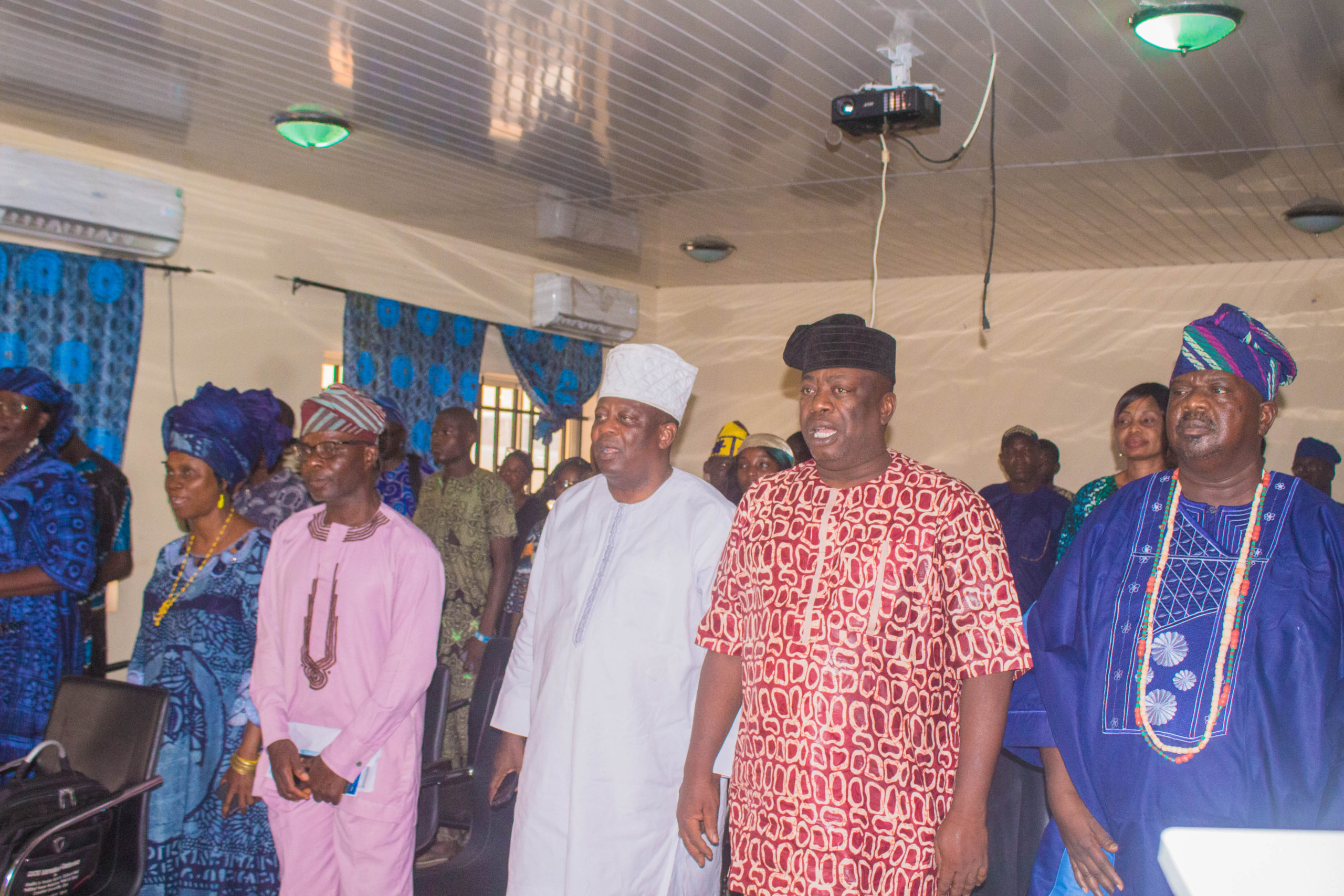
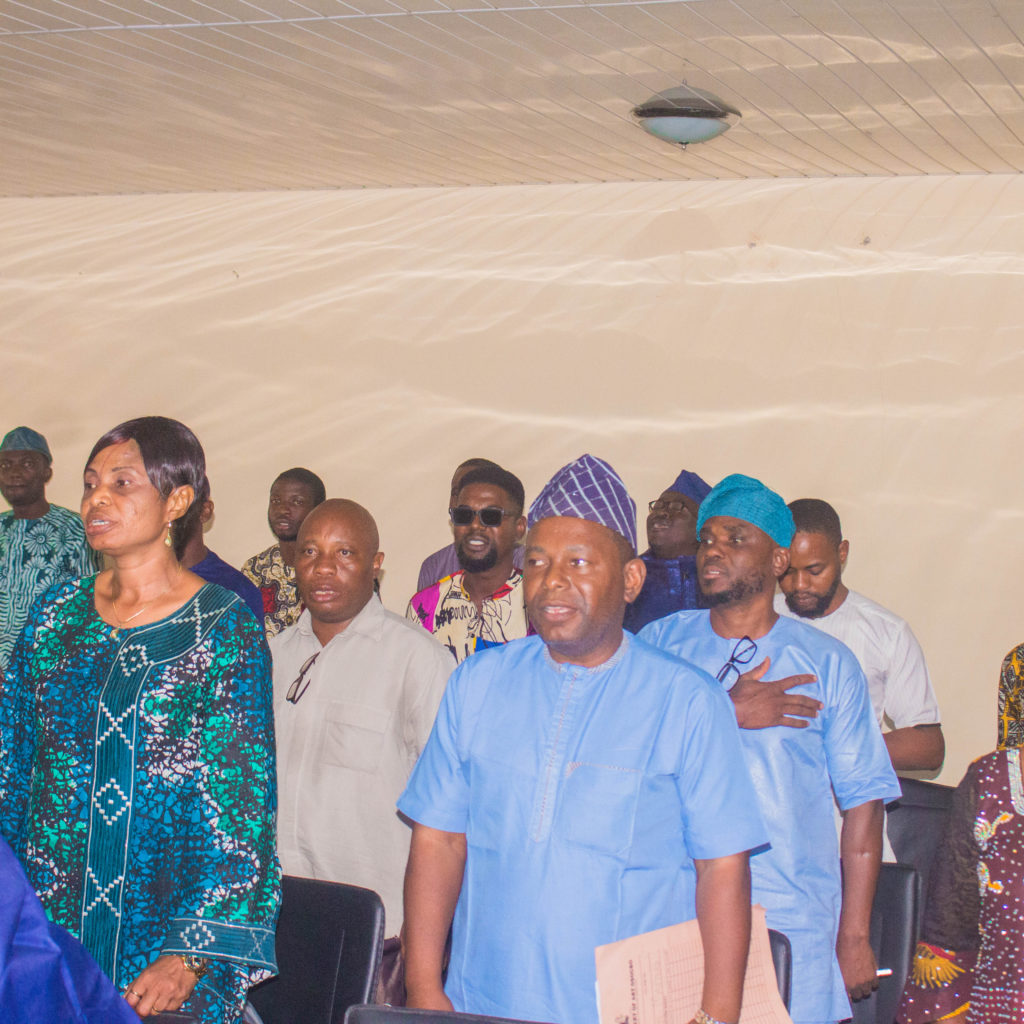
The lecture under the auspices of the Chairman, Board of Trustees, Chief Olagunsoye and the Executive Director of CBCIU, Professor Siyan Oyeweso.
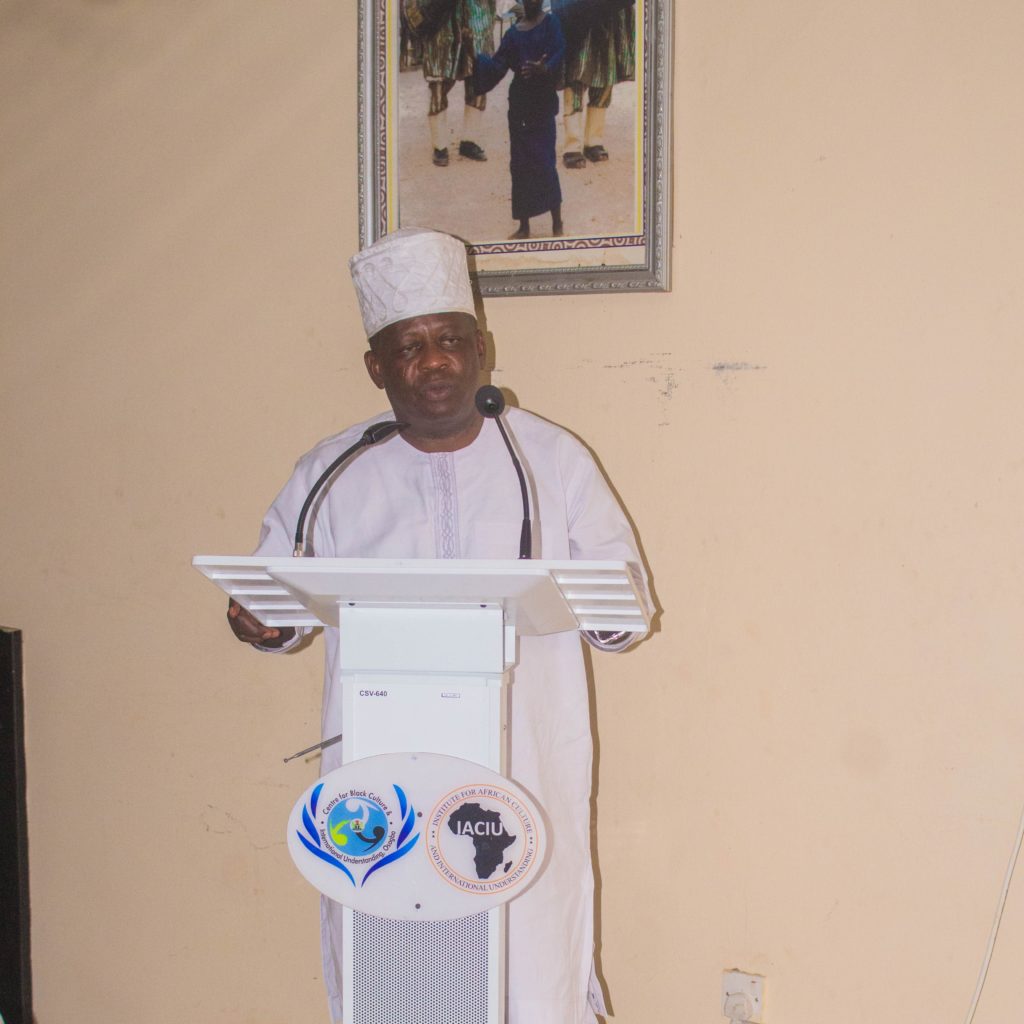
At the end of the lecture, the following observations were made at the lecture:
- African visual arts cover a rich and diverse range of traditions, styles, and techniques that diverge across different regions and cultures of Africa
- Although globalisation has fostered greater appreciation and understanding of black cultural contributions, it has sparked deeper conversations about cultural appropriation and representation.
- Films are an essential aspect of African Art that has continued to contribute deeper meaning to the identity of Africa.
- African films must focus on reengineering their content and approach, presenting Africa’s history and identity in global space as a force to reckon with.
- African governmental and non-governmental institutions in the field of Art must focus on investing in African Artists through the provision of sustainable and accessible finance, the provision of infrastructure and platforms for international engagements and collaborations.
- African music remains a powerful representation of the Blacks’ identity across various epochs. Hence, appropriate attention to the music field will situate African identity and contributions to global affairs
At the end of the lecture, the following reductions were made:
- The delegate led by 𝐂𝐡𝐢𝐞𝐟 𝐅𝐚𝐧𝐢𝐲𝐢 𝐅𝐚𝐤𝐚𝐲𝐨𝐝𝐞, 𝐀𝐠𝐛𝐨𝐧𝐠𝐛𝐨 𝐀𝐰𝐨 𝐨𝐟 𝐎𝐬𝐨𝐠𝐛𝐨𝐥𝐚𝐧𝐝 reiterate the importance of films, Africa literature, poem, oral traditions as the basis of reconstructing the identity of Africans and Blacks globally
- The delegate led 𝐌𝐫. 𝐀𝐝𝐨𝐝𝐨 𝐒𝐮𝐧𝐝𝐚𝐲 also emphasised the need for a change in the current narrative of the African music industry where content that promotes wisdom, knowledge and the African culture of Omoluabi are prioritised.
- The Executive director of CBCIU also pledged its readiness to provide elders in African history and culture the opportunity to document important aspects of African identities fading away due to the effect of globalisation.
The CBCIU-BHM ended with closing remarks and a vote of thanks from the CBCIU Executive Director, Professor Siyan Oyeweso.

